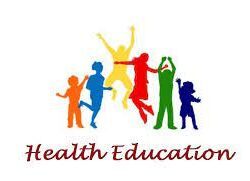Health education plays a vital role in equipping individuals with the knowledge and skills necessary to make informed decisions about their well-being. It encompasses a broad range of strategies and interventions designed to promote health, prevent diseases, and improve the overall quality of life.
Through the dissemination of accurate information, health education aims to empower individuals, communities, and societies to take proactive steps toward adopting healthy behaviors and lifestyles. This article explores the importance of health education, its key components, benefits, challenges, and future prospects.
I. The Importance of Health Education
A. Promoting Health Literacy
Enhancing Understanding of Health Concepts
Strengthening Communication Skills
Encouraging Critical Thinking and Problem-Solving
B. Preventing Diseases
Raising Awareness about Risk Factors
Encouraging Early Detection and Intervention
Promoting Vaccination and Immunization
C. Empowering Individuals
Fostering Personal Responsibility
Supporting Self-Management of Health Conditions
Encouraging Active Participation in Healthcare Decision-Making
II. Key Components of Health Education
A. Curriculum Development
Identifying Learning Objectives
Selecting Appropriate Teaching Methods
Designing Evaluation Strategies
B. Accessible and Culturally Competent Information
Addressing Health Disparities
Tailoring Messages to Specific Audiences
Ensuring Language and Literacy Appropriate Materials
C. Life Skills Development
Enhancing Personal and Social Skills
Building Resilience and Coping Mechanisms
Promoting Decision-Making and Problem-Solving Skills
D. Collaboration and Partnerships
Engaging Stakeholders and Communities
Collaborating with Healthcare Providers and Institutions
Leveraging Technology and Media Channels
III. Benefits of Health Education
A. Individual Benefits
Increased Knowledge and Awareness
Improved Health Behaviors and Lifestyle Choices
Enhanced Self-Efficacy and Confidence
B. Community Benefits
Reduction in Health Disparities
Lower Healthcare Costs
Improved Community Well-being and Quality of Life
C. Societal Benefits
Productive and Healthy Workforce
Reduced Burden on Healthcare Systems
Overall Improved Public Health Outcomes
IV. Challenges in Health Education
A. Limited Resources and Funding
Unequal Access to Education
Insufficient Funding for Health Education Programs
Lack of Trained Educators and Personnel
B. Overcoming Cultural and Linguistic Barriers
Addressing Diverse Cultural Beliefs and Practices
Bridging Language and Literacy Gaps
Promoting Culturally Sensitive Approaches
C. Adapting to Technological Advancements
Incorporating Digital and Online Platforms
Ensuring Digital Literacy and Accessibility
Maintaining Privacy and Data Security
V. Future Prospects and Conclusion
A. Innovative Approaches and Emerging Trends
Gamification and Virtual Reality in Health Education
Mobile Health Applications and Wearable Devices
Social Media and Influencer Engagement
B. Health Education Policies and Advocacy
Integration into Formal Education Systems
Strengthening Legislative Support and Funding
Collaboration with Public Health Agencies and Organizations
C. Empowering the Next Generation
Fostering Lifelong Learning and Health Literacy
Supporting Youth Engagement and Leadership
Promoting Interdisciplinary Research and Knowledge Exchange
In conclusion, health education plays a pivotal role in empowering individuals, communities, and societies to make informed decisions regarding their well-being. By promoting health literacy, preventing diseases, and fostering personal empowerment, health education contributes to improved individual health, reduced healthcare costs, and overall public health outcomes.
However, it also faces challenges such as limited resources, cultural barriers, and the need to adapt to technological advancements. By embracing innovative approaches, advocating for supportive policies, and empowering the next generation, health education can continue to evolve and create a healthier future for all.









